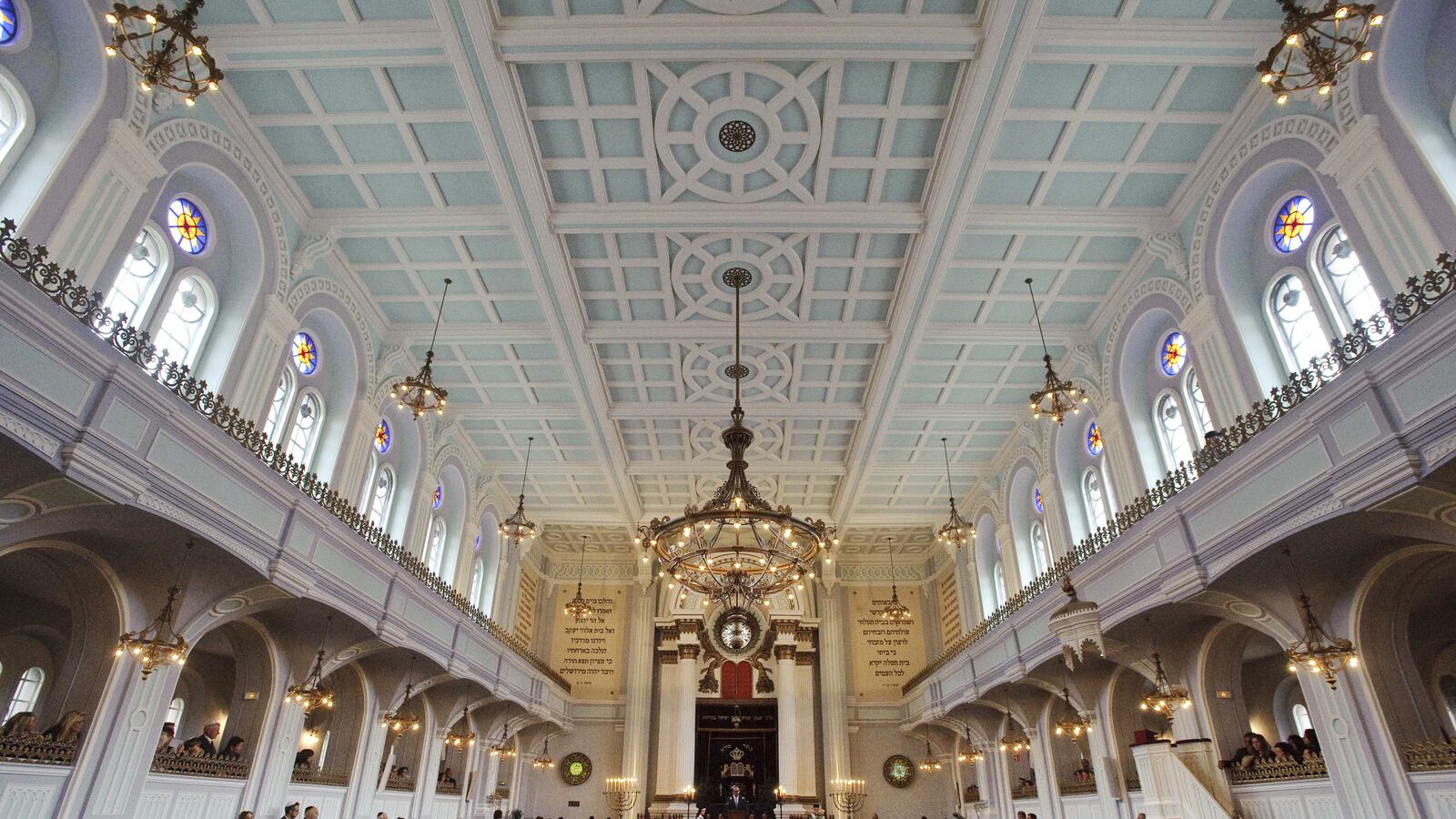It has been pointed out to me—sometimes in a mean way—that my experience as a Jew is inauthentic. First of all, I am a convert with no Jewish parentage. Second, even at its height, my understanding of what it meant to be Jewish was pretty insularly confined to Eastern seaboard Ivy League circles. It had a lot to do with borscht belt humor; a particular kind of irony; being able to say “Wheat. Fields of wheat,” with a good chance that someone would recognize it as a throwaway line from Woody Allen’s “Love and Death”; an understanding of the limits of assimilation into mainstream gentile society; making chicken matzoh ball soup from scratch for someone with a cold, but demanding my pound of flesh in return, i.e. insisting that they follow all my unsolicited recuperation advice to go with it or face perpetual nagging; engaging in what Paul Ricoeur called a “hermeneutics of suspicion”; a love of classical music; being multilingual (that rootless cosmopolitan thing); having close European ties, for good or for ill; feeling obligated to be the moral conscience of society; and the ability to say things like “Wittgensteinian” without getting your ass kicked. I was killer at it.

I suppose it’s not surprising, though, that with such seemingly tenuous ties to Judaism, my Jewish practices lapsed a few years after my conversion. I stopped going to my New York synagogue, partly because it had way too many assholes who never forgave me for having ethnic roots too far east of Kiev. I then gave up on kashrut around the same time that I quit smoking, giving the semi-bogus excuse that forgoing both langoustines and cigarettes involved too much self-abnegation—although God had his last laugh, since I discovered after trying to re-introduce shellfish into my diet that I had become dangerously allergic to it during my kashrut years.
Eventually, I was a Jew no more. Or so I thought.I moved to France six years ago, and discovered something very unexpected: Even absent the American Ashkenazi cultural context, I still identified myself as Jewish.
This would come up in a number of contexts: I worked in French news, where I was alarmed to discover that settlements were called “colonies.” I piped up my objection, but it was the canonical term and there was no chance I would succeed in changing it.
Then came my indignation about the self-inflicted anonymity of French non-religious Jews.
A few years ago, I asked someone named David whether he was Jewish, because in France, non-Jews rarely give the name David or Benjamin to their children. That was a big mistake. I got a big earful along the lines of, “This is not America. You can’t just go around asking people whether they are Jewish.”
In my experience, non-Orthodox French Jews don’t really identify themselves as Jews unless they are only a small fraction Jewish. In some circles, saying that you might be 1/16 Jewish might even hold a little cachet, the way that some Americans might think it’s cool if someone is 1/16 Apache. But once you get into octoroon territory, it holds far less mystique.
Of course, the custom of not identifying Jews can be a good thing. First of all, it makes perfect historical sense: France was occupied by Germany, and consequently, the French are none too fond of people trying to suss out who the minorities are. In fact, it is illegal for any public French body to conduct polls or a census with race or religious information. Any corporation desiring that information for marketing or other purposes has to commission a private company to get the data.
Additionally, I think it’s remarkable that people like Lionel Jospin, Bernard Henri-Levy, and (ugh) Dominique Strauss-Kahn can become prominent politicians in France without any mention of the “Jewish vote.” I am entirely certain that France will have a Jewish president before the U.S. does.
France is a secular country; Article 1 of its constitution says so: "La France est une République indivisible, laïque, démocratique et sociale." France is an indivisible, secular, democratic, and social republic.
The downside of this is that if you start asking about synagogues and you’re not bound by Orthodox tradition to attend, people start to think there might be something wrong with you. Which is what happened to me when I tried to go to Yom Kippur services.
I asked my office HR woman whether I could take Yom Kippur off, and she looked at me wide-eyed and said, erm, that would be a personal day, not a sanctioned holiday, and you have to ask for days off 30 days in advance. You aren’t supposed to ask for religious dispensations.
I decided I’d go to services for part of the day anyway. I rang up the Rue Copernic synagogue in Paris, perhaps best known for being the site of a deadly anti-Semitic bombing in 1980. I asked, “How should I pay the 40 Euros for the services?” and they answered, as if I was stupid, "Bring the money when you come to services." I was expecting them to ask me to mail a check, or take my credit card number over the phone, because in my U.S. experience, synagogues weren’t supposed to encourage people to carry money on Yom Kippur, let alone operate cash boxes in front of the services.
I attended services, which were not held on synagogue grounds; they’d rented out an amphitheater. I walked in, stayed about 30 minutes, then walked out. I don’t really know why; it was something about the fact that everyone was really gussied up and wearing leather shoes. I suppose it was hypocritical of me to judge them, since I had totally lapsed myself, but it looked too much like a night at the opera, and not special or different enough to feel like a High Holiday.
Then I thought I’d try to go to a Sephardic synagogue, but that was over before it started. There is no such thing as Reform or Conservative Sephardim in France; if I made the decision to go to a Sephardic synagogue, I’d have to agree to sit in the upper level with the other women. I asked a few friends if they could let me tag along with them to synagogue, and they all refused. One because “You can’t really go to my synagogue unless you’re from Oran in Algeria.”
So I didn’t make any more attempts to do Jewish stuff. At the same time, I was trying to assimilate into French society. I spoke the language very well. I could engage in these bizarre, lengthy arguments that French people get into that don’t lead anywhere; I owned an apartment in the very non-touristy, very residential 15e arrondissement; I could cook a boeuf bourgignon to rival the best of them; I understood the oyster classification system; I complained bitterly about my work conditions and told my bosses to stuff it if they wanted me to finish my lunch early. In other words, I was becoming very French.
But there was one essential thing missing. And that was my Jewish identity. Specifically, my shallow, Eastern seaboard, Ivy League, chicken matzoh ball soup and “Wheat. Fields of wheat” identity. And, as I discovered, maybe that identity wasn’t so shallow after all.
I moved back to the U.S. a few months ago. Usually, when I explain to bewildered Francophile Americans why I made the decision to return, I explain that I felt, when all was said and done, more American than French. That’s not entirely true; I never felt entirely American. I never felt entirely at ease here. I don’t identify as a goy at all.
It was my Jewish identity that allowed me to have a place in the U.S. And now I was finding that I couldn’t function optimally without that part of myself.




